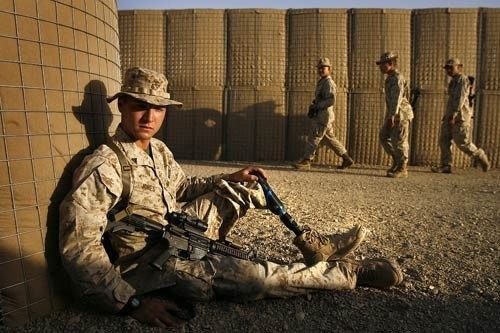
The International Community erupted at the news that the United States of America could unilaterally strike Syria in response to the release of chemical weapons on August 21st of this year. Calamitous protest occurred on all corners of the internet as the world attempted to piece together the events that would lead President Barack Obama to pursue what at the time, to many seemed like a heavy-handed response to a geopolitical game of chess occurring on the opposite side of the world in a region shook by the latent consequences of decades of war. The United States government rested its interest on the intelligence which suggested that chemical weapons had been dispersed with the explicit interest of murder by Bashar Al-Assad, president of Syria.

Many, myself included, felt this latest instance of American foreign policy strategy seemed too much like that which had brought our nation into a bloody conflicts in Iraq and Afghanistan. State intelligence to suggest a chemical attack was viewed with scrutiny by those with clear memories of former Secretary of State Colin Powell’s pre-Operation Iraqi Freedom presentation to the UN. In the aftermath, of that doubt however, the United States, in my opinion has made the case for its interest in Syria. The diplomatic tight rope walking that occurred in the weeks since the beginning of this situation, highlight the necessity and caution required to protect national security and balance questions of confidence in an ever-shifting, ever dangerous modern theater of war.
The realities of the shifting focus of modern conflict are grim. The rise of terrorism as an international means of political expression and the continued impact of what Mary Kaldor termed “New Wars”, or wars of globalization driven by identity politics; continue to shape the modern scope of International security, bending leaders such as President Barack Obama, to consider, pragmatically, how to best to manage national interests, with a necessity to be accountable to a 24 hour news cycle and a galley of supporters and enemies alike wishing to see into the crystal ball of future in hope for securing a bit of peace of mind in the present. It is increasingly difficult to predict the ebb and flow of war or how it will shape our national interests. Brilliant minds dedicate their lives to this high stakes game and our freedom, liberty and sense of purpose rest on their ability to operationalize and strategize the best means of ensuring American safety and International stability.
The truth is, we should be grateful for every day of domestic bliss, every opportunity to return home safely to the warmth and familiarity of our lives. Not all nations are as diverse as the United States and not all nations in the International Community are as peaceful either.
 Africa stands embroiled in conflicts stretching across its massive landmass destroying, polluting, entrenching, and choking any ability for peace and liberty to flourish. We tend, in the Western world, to read more about events that take place in the northern most portion of the continent or the Middle East as it is commonly described, but the truth is, the ravages of war no little boundary on a continent that has witnessed more horror than just about anywhere else on earth.
Africa stands embroiled in conflicts stretching across its massive landmass destroying, polluting, entrenching, and choking any ability for peace and liberty to flourish. We tend, in the Western world, to read more about events that take place in the northern most portion of the continent or the Middle East as it is commonly described, but the truth is, the ravages of war no little boundary on a continent that has witnessed more horror than just about anywhere else on earth.
It should be the responsibility of all states in the International Community, to bring stability to this region of our world. Africa needs security. Africa deserves peace. The world has the ability to wage wars or to promote peace and it is my opinion that the world should do everything it can to bring stability to this region, lest it fall further into a mire of death and destruction. Africa is the center of the world, the heart of humanity and center of immense biodiversity. Africa deserves peace.
It should be the role of the International Community to commit to paradigms of Restorative Justice in the hopes that remuneration and redress on a massive scale previously unprecedented could bring opportunity and security to this and many other regions of the world currently struggling with the ravages of war. Wars have a cause but the cause of peace should be strong enough to motivate all peoples to work through diplomacy towards cooperation. All the world’s most brilliant minds should be dedicated to solving the problems which prevent our world from achieving all that is capable of. Together, our International Community can achieve true security and lasting peace. Together, we can stand up to tyrannical pursuit of war in favor of commitments to whole-world approaches of community and peace.
The death of Syrians at the hands of its own government is cause for International Alarm but so is the plight of the citizens of Egypt, of the Congo, of Sudan. Africa deserves restorative justice; the African continent deserves lasting security; the African people deserve peace.
Leave a Reply